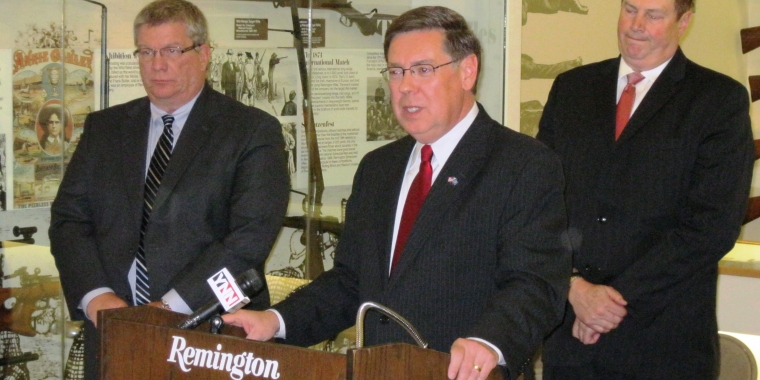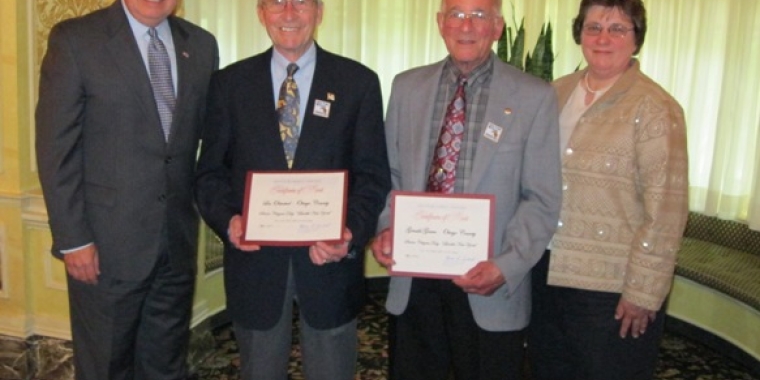
Senator Seward, New York State Senate Pass Important Conservation Incentive
The New York State Senate passed legislation, sponsored by Senator James L. Seward (R/I/C-Oneonta), which would provide an important incentive for private landowners who engage in habitat conservation activities on their property. The Habitat Conservation Tax Credit (S.2179) would give eligible landowners a credit on their income taxes of 25% of the property taxes paid on land enrolled in a habitat conservation program.
"I am pleased to partner with Audubon New York and the Ruffed Grouse Society in developing legislation that will provide improved habitat for the state’s wildlife – both non-game and game species especially that rely on open fields and early successional forest growth," Seward said. "A variety of song birds and upland wildlife, such as the ruffed grouse, are experiencing declines in their numbers due to habitat loss. S. 2179 will move the state forward to encourage management of private property for wildlife."
"Habitat loss is the leading threat to birds and other wildlife in New York, and as the majority of the state is in private ownership, the actions of private landowners will determine the future of our wildlife," said Albert E. Caccese, Executive Director of Audubon New York, the state program of the National Audubon Society. "This bill invests wisely in wildlife conservation by creating an incentive to landowners to provide an important public service through habitat conservation activities on their own property. We applaud Senator Seward and the State Senate for passing this critical measure."
"The recently released Ruffed Grouse Conservation Plan and the American Woodcock Conservation Plan both identify the need to put millions of acres under active management in order to return the birds to 1970 population levels," said RGS Executive Director Michael Zagata. "Traditional sources of funding will not be sufficient to meet that need. However, Senator Seward's bill is the right solution for the right time. Tax relief to landowners who manage for wildlife will result in an economic boon to our rural upstate communities."
Grassland birds, such as Bobolinks, Short-eared Owls, Eastern Meadowlarks and other species that depend on habitat such as hayfields and pastures, are one such group of species in serious decline in New York State that rely on private landowners to manage their habitat for their survival. The American woodcock, which requires young and transitioning forests for its survival, is declining about 4 percent annually across its range.
Many federal conservation programs have been developed to incentivize private landowners to protect grasslands habitat, contribute to open space conservation, utilize best management practices to maintain riparian areas, contribute to improved water quality, and most importantly help in the conservation of Species of Greatest Conservation Need (SGCN) including endangered, threatened or rare bird species.
These programs provide much needed funding to landowners who commit their land to conservation by agreeing to implement a habitat management plan. However, in many instances these programs do not cover the full cost of the conservation actions, and rising property taxes are making it harder for landowners to engage in conservation. .
The Habitat Conservation Tax Credit would provide a much needed state match to the federal funds that are already available to assist landowners with conservation activities. This legislation would also provide further incentives for the continued survival of SGCN through successful partnerships with the private landowners who own the vast majority of habitat upon which these birds rely. Preventing species from becoming threatened and endangered is economically responsible as the costs escalate greatly when their populations reach the breaking point.


